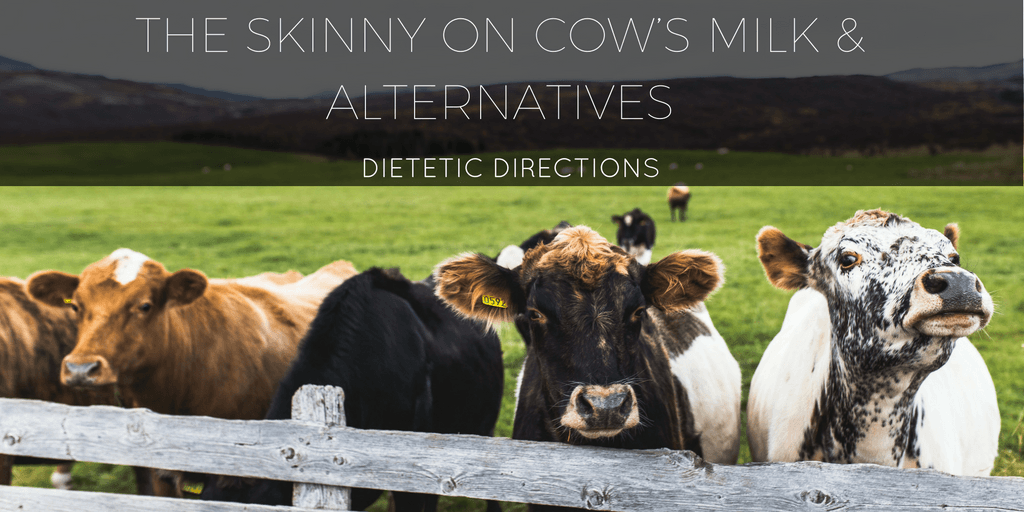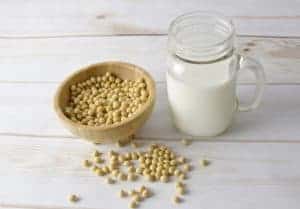
The Skinny on Cow’s Milk & Alternatives
What is better: cow milk, soy milk, almond milk, rice milk or coconut milk? Are they nutritionally equivalent – meaning they have the same amounts of calcium, fat and protein? If you have asked yourself these questions you have come to the right spot!
Which is nutritionally better: cow, soy, almond, rice or coconut milk? Share on XFirst, before doing a nutritional comparison, it is important to mention that people choose dairy alternatives for diverse reasons. If you are a vegetarian or a vegan you might choose a milk alternative, like soy or almond milk, because they are plant-based. Additionally, if you are lactose intolerant you might choose an alternative beverage (soy milk, almond milk) that does not contain lactose.
Note: If you are lactose intolerant a small amount of lactose in cow’s milk (1/2 cup to 1 cup serving) is generally tolerated without adverse symptoms. Cow’s milk is also available in lactose-free varieties.
Here is the breakdown:
| Type of Milk or Milk Alternative (250mL) | Calories (kcal) | Protein (grams) | Fat (grams) | Calcium (mg) | Lactose? |
|---|---|---|---|---|---|
| Cow’s Milk (whole 3.3%) | 155 | 8 | 8 | 290 | Yes |
| Cow’s Milk (2%) | 129 | 9 | 5 | 302 | Yes |
| Cow’s Milk (1%) | 108 | 9 | 3 | 307 | Yes |
| Cow’s Milk (0% or skim) | 88 | 9 | Trace | 324 | Yes |
| Soy Milk | 110 | 7 | 4 | 316 | No |
|
Almond Milk
|
40 | 1 | 3.5 | 300 | No |
| Rice Milk | 127 | Trace | 2 | 219 | No |
| Coconut | 522 | 5.5 | 57 | 50 | No |
Bottom Line:
- Soy beverage is the most common cow’s milk alternative and according to Canada’s Food Guide, it is ‘nutritionally comparable’ to cow’s milk.
o The fat and protein content is similar to cow’s milk
o Rice and almond beverages are lower in both protein and fat - Only animal milks have naturally occurring calcium. Cow’s milk and goat’s milk are both naturally rich in calcium. Look for milk alternatives that are fortified with about 30% DV (daily value) calcium.
- Coconut milk is not fortified with calcium and is very high in fat
- Plant based milk alternatives do not contain the amount of vitamins and minerals that occur naturally in cow’s milk (magnesium, zinc, vitamin A, riboflavin, vitamin B6 and iodine)
- Soy, rice and other vegetarian beverages are not appropriate alternatives to breast milk, infant formula or whole milk during a baby’s first two years
- Children should be switched to a low-fat milk (1%) after 2 years of age
Enjoy milk and milk alternatives as part of healthy diet!




